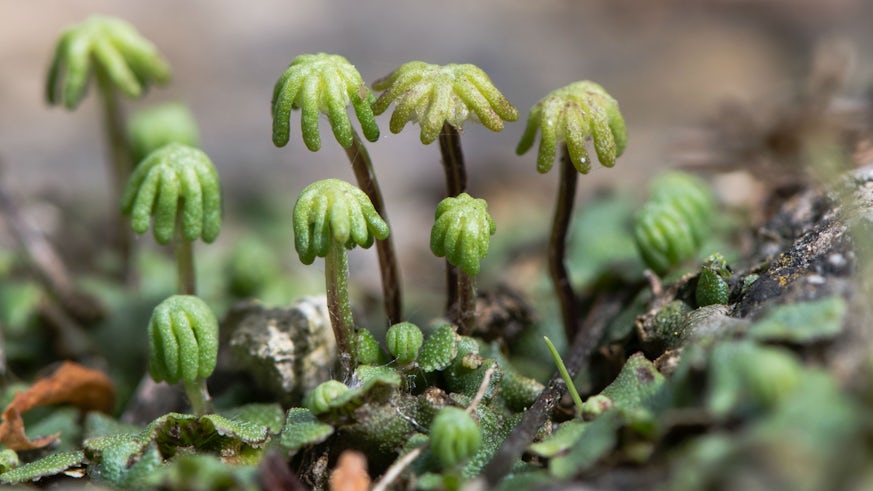Complex plants were first to conquer land
16 February 2018

The first plants to conquer land were a much more complex species than has previously been assumed, new research has shown.
Before the first land plants appeared on Earth around half a billion years ago, Earth would have looked unrecognisable with no grass, trees or even mosses.
Up until now, mosses and their relatives the hornworts and liverworts have been regarded as the first true plants on dry land. These groups, collectively known as the bryophytes, are small and inconspicuous, damp-loving plants.
The simplest of these are liverworts and were believed to be the first on land.
In a new study published in the journal Current Biology, a team involving scientists from Cardiff University modelled the molecular sequences of modern plants and showed that liverworts are actually more closely related to mosses than hornworts.
As such, the team have united the liverworts and mosses in to a new group of plants, which they named ‘Setaphyta’.
This new family tree of plants including the Setaphyta group shows that liverworts (as we know them today) were not actually the first group to conquer land, and that the simplicity of the liverwort plant was down to the fact that it had lost some of its characters over time, rather than it being a simple, primitive ancestor of all other plants.
Co-author of the study Dr Jennifer Morris, from the School of Earth and Environmental Sciences, said: “In order to produce this family tree we analysed a large molecular dataset representative of all major groups of land plants and their algal relatives. In none of our analyses do we see liverworts as the earliest group of land plants, so their relative simplicity represents loss rather than the primitive state.”
As it was assumed that the first plants to appear on Earth were liverworts, scientists have used these as ‘model organisms’ to understand the long-term evolution of plants.
This new study now suggests that the first land plants were more complex than liverworts, and that our assumptions on the evolution of land plants will have to be re-evaluated.